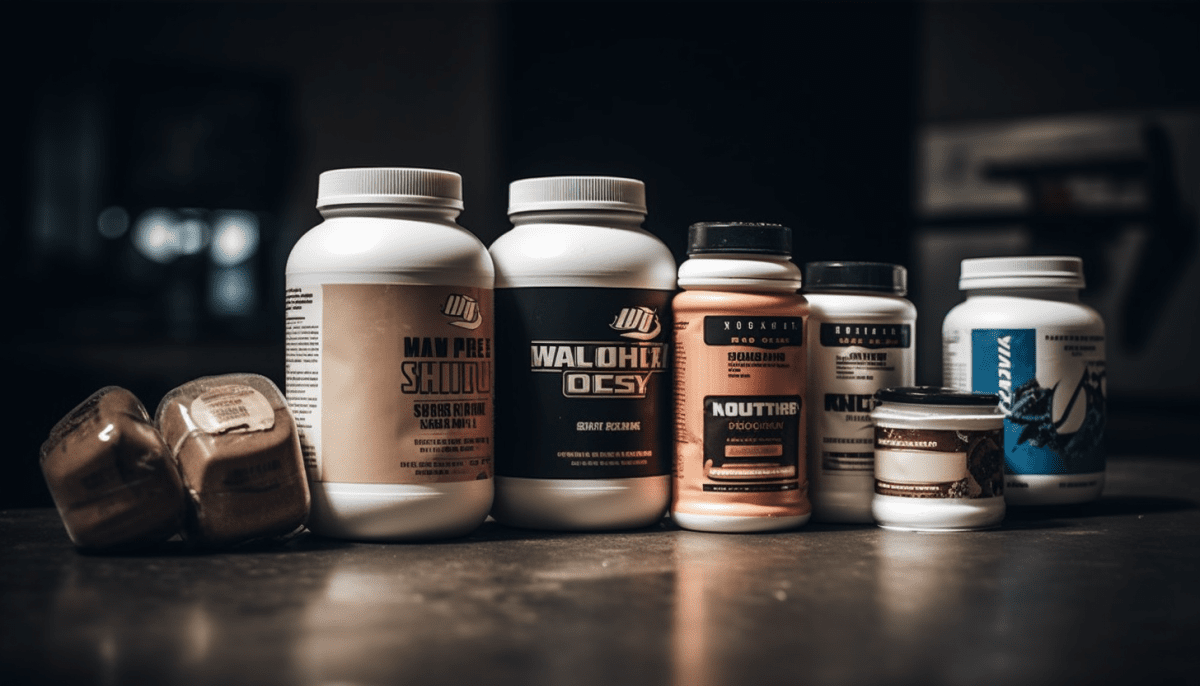After an intense workout, your muscles are eager to recover and grow stronger. This is where post-workout supplements come into play. They are specifically designed to support your body’s repair processes and help you bounce back faster. By providing essential nutrients right after your workout, these supplements can be a game changer in your fitness journey.
One of the primary reasons post-workout supplements matter is that they deliver proteins and carbohydrates at a time when your body needs them most. After exercising, your muscles are depleted of glycogen and require amino acids to kickstart recovery. Consuming a protein shake or a supplement rich in branched-chain amino acids (BCAAs) can significantly enhance muscle protein synthesis, which is the process that helps your muscles repair and grow.
In addition to proteins, many post-workout supplements include essential vitamins and minerals that play key roles in recovery. Ingredients like glutamine can help reduce muscle soreness while electrolytes can replenish what’s lost through sweat. When your body is quickly supplied with these nutrients, you set the stage for better performance in your next workout.
Moreover, incorporating post-workout supplements into your routine can help to minimize fatigue. After pushing your limits, your muscles can feel drained and worn out. When you provide them with the right nutrients, you not only reduce recovery time but also help maintain energy levels for your next workout. This means that you can stay consistent in your training, ultimately leading to better results over time.
Best Ingredients for Muscle Recovery
After an intense workout, your muscles need the right nutrients to recover effectively. This is where post-workout supplements come into play. Certain ingredients have been proven to help with muscle recovery, allowing you to bounce back faster and return to your fitness routine stronger than before.
One of the best ingredients for muscle recovery is protein. Whey protein is particularly popular because it is quickly absorbed by the body. Consuming whey protein after exercising provides your muscles with the essential amino acids they need to repair and grow. Another great option is casein protein, which digests more slowly, making it perfect for providing your muscles with a steady supply of nutrients over several hours.
In addition to protein, branched-chain amino acids (BCAAs) play a crucial role in reducing muscle soreness and stimulating muscle growth. These essential amino acids—leucine, isoleucine, and valine—help reduce exercise-induced muscle damage. Many athletes find that consuming BCAAs before or after their workouts helps them recover more efficiently.
Lastly, creatine is well-known for its recovery benefits. It helps replenish the energy stores in your muscles, allowing for improved performance in subsequent workouts. Regularly supplementing with creatine can also help increase muscle mass over time, making it a favorite among those looking to enhance their strength and fitness levels.
Timing Your Supplement Intake
When it comes to maximizing the benefits of post-workout supplements, timing is key. Consuming your supplements at the right moment can enhance muscle recovery and help replenish the nutrients your body needs after an intense workout. The ideal time to take your supplements is within 30 minutes to 2 hours after finishing your exercise routine. This window is often referred to as the "anabolic window," a period when your muscles are primed to absorb nutrients more effectively.
During this time, your body is in a state of heightened sensitivity to insulin, which is crucial for nutrient uptake. Taking a fast-digesting protein source, like whey protein, can provide your muscles with the amino acids they need for repair and growth. Additionally, pairing your protein with some carbohydrates can replenish glycogen stores and further support recovery. Look for supplements that contain both protein and carbs to ensure you’re giving your body what it needs after a tough workout.
It’s also important to consider hydration in your post-workout routine. While supplements are effective, don’t forget to drink plenty of water or electrolyte drinks to rehydrate. Dehydration can hinder recovery and performance, so replenishing fluids alongside your supplements will help you feel refreshed and ready for your next workout. Taking the time to hydrate can be just as important as consuming protein or carbs in the recovery process.
Lastly, remember that everyone’s body is different. It might take some trial and error to find the best timing and types of supplements that work for you. Listen to your body and adjust your intake accordingly. With the right timing and a little attentiveness, you can boost your muscle recovery and make the most of your post-workout supplements.
Additional Tips for Faster Recovery
When it comes to muscle recovery, post-workout supplements can give you a solid boost. However, there are several additional tips that can help speed up your recovery process. Staying hydrated is crucial, as water plays a vital role in repairing and rebuilding muscle. Make sure to drink enough fluids before, during, and after your workout to keep your body operating at its best.
Nutrition is another key factor in recovery. Consuming a balanced meal rich in protein and carbohydrates within an hour post-workout can help your muscles recover faster. Lean meats, fish, legumes, and whole grains should be part of your diet to replenish energy stores and stimulate muscle repair. Don't forget about healthy fats like avocados and nuts, which also support overall health.
Incorporating stretching and foam rolling into your routine can help alleviate muscle soreness. Gentle stretching enhances flexibility and reduces tightness, while foam rolling helps release tension in your muscles. Both practices encourage blood flow, which is essential for transporting nutrients to your muscles and aiding recovery.
Lastly, prioritize getting enough sleep. Quality rest allows your body to heal and recharge, making it an essential aspect of the recovery process. Aim for 7-9 hours of sleep each night to optimize muscle recovery and ensure you're ready to hit the gym again.



